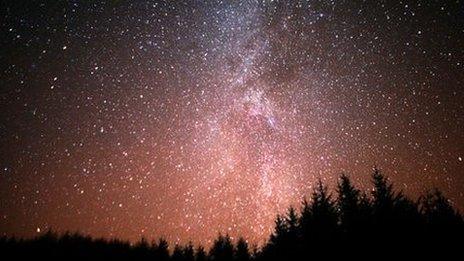West Penwith recognised with Dark Sky Park designation
- Published
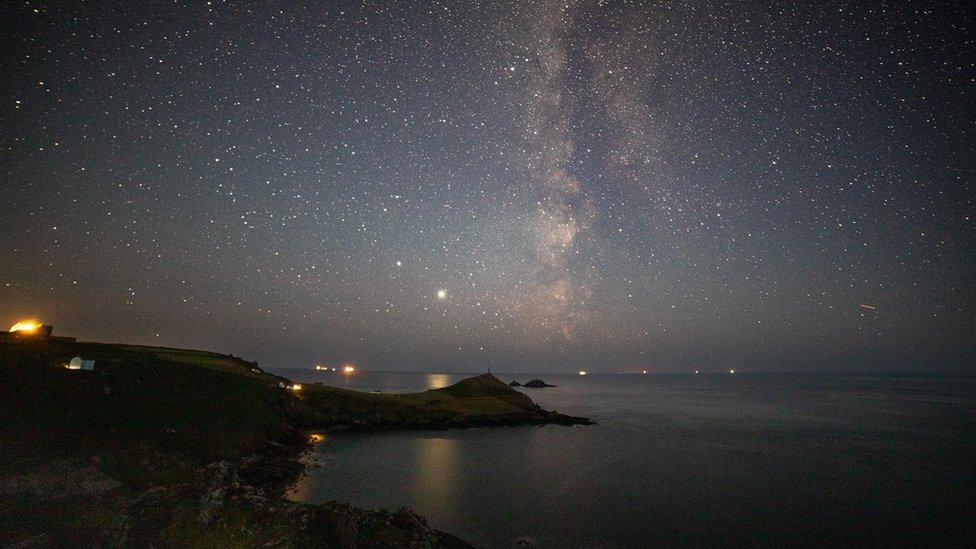
The night sky over Cape Cornwall in West Penwith
An area of Cornwall scattered with ancient monuments has been officially recognised as one of the best places in the world to see the stars at night.
West Penwith is now an International Dark Sky Park (IDSP) with minimal traces of light pollution.
Cornwall Council encouraged a partnership between residents, businesses and councillors to achieve the nomination.
It is now the second area in Cornwall to become an IDSP, after Bodmin Moor.
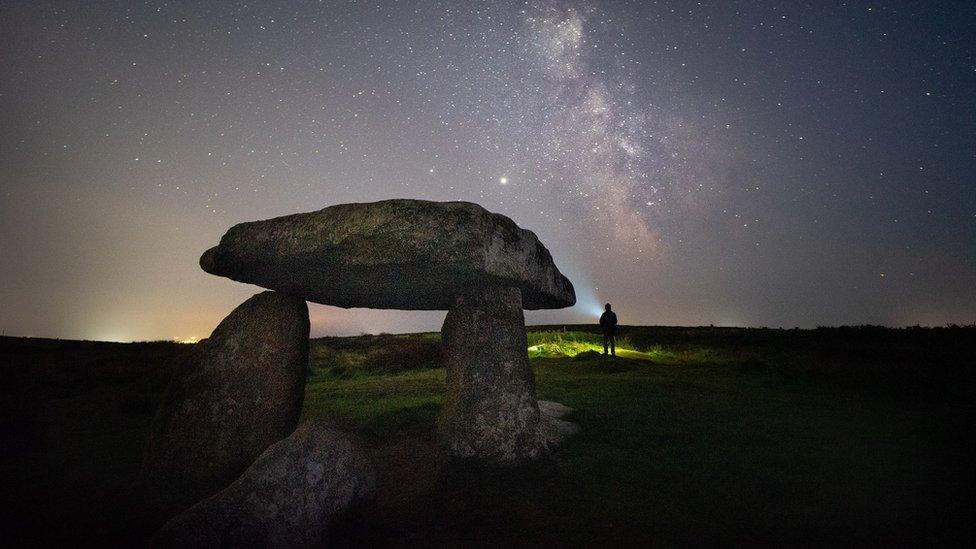
Stargazing at Lanyon Quoit
The area joins more than 185 places around the world that support dark sky advocacy, external.
West Penwith, which has been recognised as an Area of Outstanding Natural Beauty since 1959, refers to the area in the far south west of Cornwall, almost surrounded by the sea on three sides.
Cornwall Council cabinet member for environment and climate change, Martyn Alvey, said: "This is a tremendous community-led achievement which officially recognises what we already knew - West Penwith has a fabulous night sky which its residents are understandably proud of.
"It means that more people will get to know about it and come to enjoy and appreciate it."
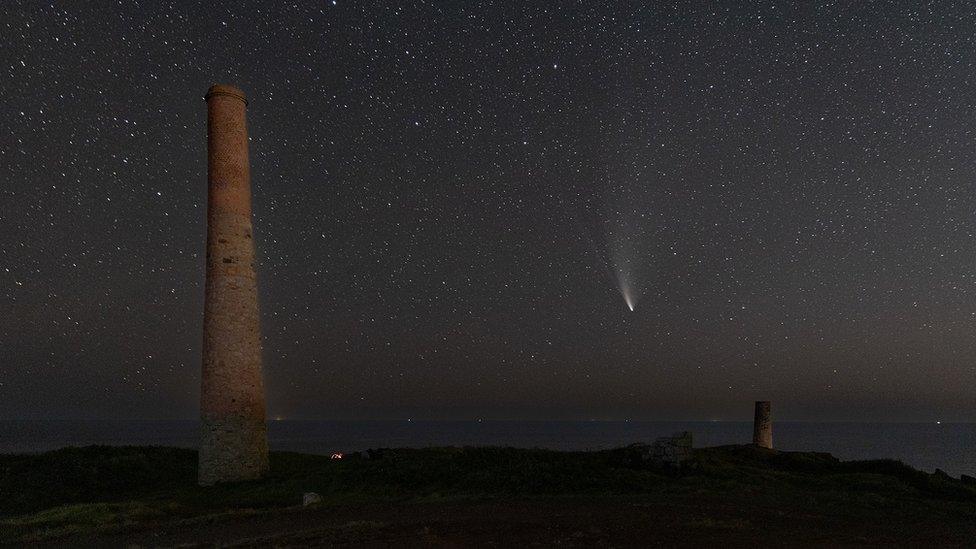
The Levant Mine is part of a National Trust property at Pendeen
Photographer Duncan Scobie grew up in the area and has spent countless nights capturing images of the night skies.
He said: "I have marvelled at the huge stellar expanse above our heads and the multitude of stars made more visible by the lack of light pollution in this part of the world.
"Combine a million stars with stunning beaches and cliffs, moorland, ancient sites, incredible post-industrial landscapes and you have something very magical and special and worth protecting."
The designation means the partnership will do the following:
Work to preserve and enhance the dark night sky above West Penwith Area of Outstanding Natural Beauty for the pleasure and wellbeing of residents, visitors and wildlife
Encourage a reduction in light pollution
Engage with individuals and groups in the wider west Cornwall area for educational purposes (astronomy, nature, historic environment and human well-being)
Provide a guide for residents and visitors to best appreciate the dark night sky
Promote eco-tourism and astro-tourism
Inspire other designated landscape areas, within Cornwall and beyond, to appreciate and protect their dark skies
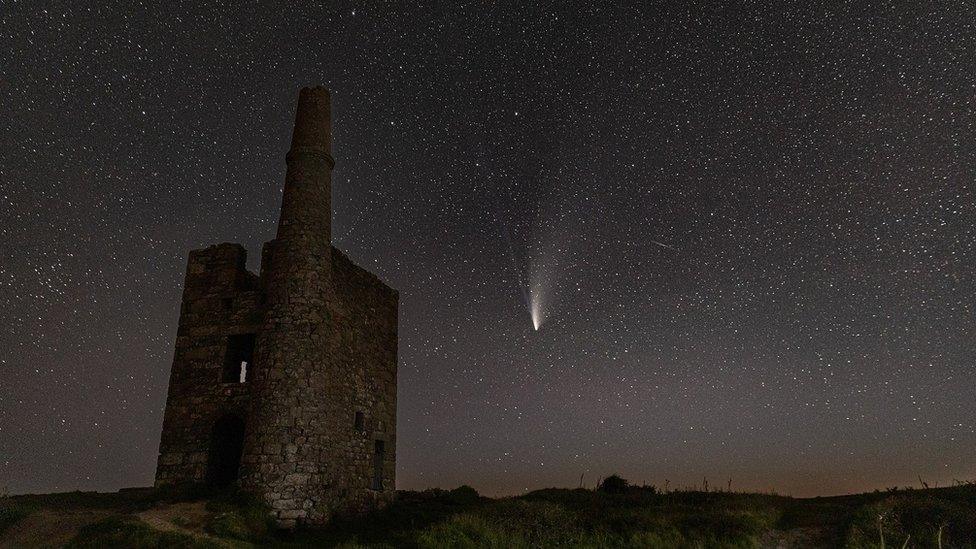
The Ding Dong mines are in the parish of Madron in west Cornwall
Former parish councillor Kevin Hughes said: "Under a pitch black starry sky in West Penwith, when sitting by some of the ancient monuments, we are looking at the very sky that 2000 years or more ago our ancestors were looking at.
"We must protect that sky for future generations to also be able to appreciate and wonder at."

Follow BBC News South West on Twitter, external, Facebook, external and Instagram, external. Send your story ideas to spotlight@bbc.co.uk, external
Related topics
- Published16 April 2016
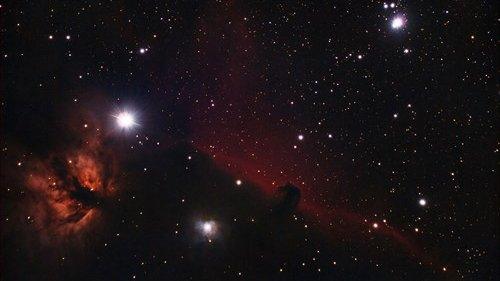
- Published10 January 2014
